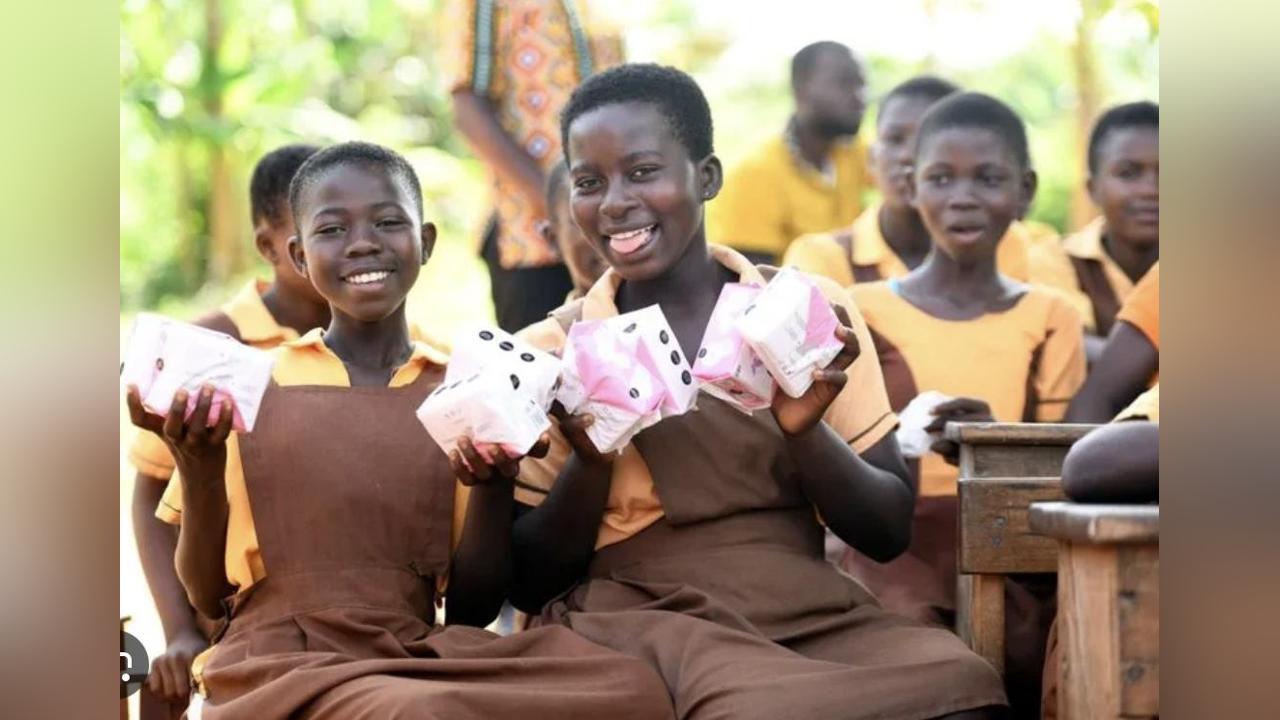Africa-Press – Ghana. In a modest classroom in Ghana’s Upper East Region, 14-year-old Amina beams with newfound confidence.
For the first time, she no longer dreads the time of the month when she has to choose between nature’s call and the classroom.
Thanks to the government’s recent initiative, thousands of girls like her will receive free sanitary pads, a move aimed at combating period poverty and promoting uninterrupted schooling.
The government has allocated GH₵292.4 million in the 2025 budget to provide free sanitary pads to female students in primary and secondary schools.
This initiative seeks to address the challenges of menstrual hygiene management, which has historically led to absenteeism and dropout among schoolgirls, especially in underserved communities.
While the programme has been lauded for its positive impact on girls’ education and empowerment, environmentalists and sustainability advocates are raising concerns about the ecological footprint of disposable sanitary pads.
Environmental and Health Implications
Amina community is water and sanitation poor which should influence the choice menstrual pads for her. But, as a rural community rubbish is either burnt openly at the backyard or desposed off at the community’s unenigeered dump.
Most disposable sanitary pads in Ghana are made from plastic and synthetic materials and are non-biodegradable.
With the mass distribution of these products, Ghana faces the challenge of managing increased sanitary waste, which could strain existing waste management systems and contribute to environmental pollution.
Where the thought of reusable pads is fixed beneath the programme alongside disposal ones, the availability of clean water should be a variable in the equation.
Approximately 20 billion pads are thrown away each year, contributing to massive waste management challenges.
According to global studies, disposable pads take around 500-800 years to decompose in landfills, releasing harmful substances into the environment.
Modern pads contain up to 90 per cent plastic, which leaches into the environment, harms wildlife, and contaminates soil and water.
While commending the government for the initiative, Mr Amdiya Abdul-Latiff, CEO of Eco-Me Africa, says the sanitary pads being shared might not be the best solution due to health implications, the itches, allergic reactions could be a turn off.
Many young girls, she explains,in deprived communities,facing extreme poverty use unhygienic pieces of materials, newspapers and some exchange sex for money to buy sanitary pads.
“One of the crucial needs of every young girl is menstruation because it borders on their health and confidence, so some will go all leant to get pad at that time of the month,” she says.
That notwithstanding, Madam Amdiya wants government to consider the long-term environmental consequences.
“Introducing reusable sanitary products, like EcoPeriod pads, can offer a sustainable solution that aligns with our environmental goals,” she says.
Sustainable Alternatives
Organizations like Eco-Me Africa advocate for the inclusion of reusable menstrual products in the government’s distribution programme.
These products not only reduce environmental impact but also offer cost-effective solutions for menstrual hygiene management.
“By integrating reusable pads into the initiative, we can address both menstrual equity and environmental sustainability,” Mr Abdul-Latiff adds.
Trade experts are also upbeat that establishing small-to-medium-scale factories for pad production will creates employment for seamstresses, tailors, quality controllers, and packaging staff.
Jobs can also be created in logistics, retail, marketing, and training on product use and hygiene.
Women’s groups and cooperatives can be supported to mass-produce and distribute the pads, strengthening the social enterprise ecosystem.
Ghana currently imports most disposable pads. Producing reusable ones locally reduces dependency on imports, saving foreign exchange and retaining capital within the country.
Government’s Stance
The government acknowledges the environmental concerns and is exploring ways to incorporate sustainable practices into the programme. Collaborations with local manufacturers and NGOs are being considered to produce and distribute eco-friendly menstrual products.
“Our goal is to ensure that every girl can manage her menstruation with dignity while also protecting our environment,” says Dr Naa Agnes Momo Lartey, the Minister of Gender, Children, and Social Protection.
Looking Ahead
Ghana’s free sanitary pad initiative marks a significant step toward gender equality and educational empowerment.
However, balancing these social advancements with environmental responsibility is essential.
By embracing sustainable alternatives and fostering community awareness, Ghana can lead the way in implementing holistic solutions that benefit both its people and the planet.
Source: Ghana News Agency
For More News And Analysis About Ghana Follow Africa-Press







